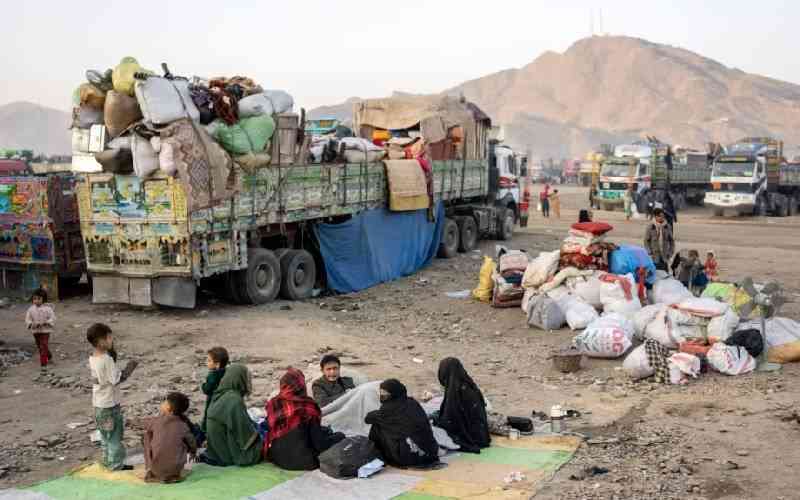×
The Standard e-Paper
Stay Informed, Even Offline

Afghans fleeing Pakistan to avoid arrest and deportation are sleeping in the open, without proper shelter, food, drinking water and toilets once they cross the border to their homeland, aid agencies said Sunday.
Hundreds of thousands of Afghans have left Pakistan in recent weeks as authorities pursue foreigners they say are in the country illegally, going door-to-door to check migrants' documentation. Pakistan set Oct. 31 as a deadline to leave the country or else they'd be arrested as part of a new anti-migrant crackdown.